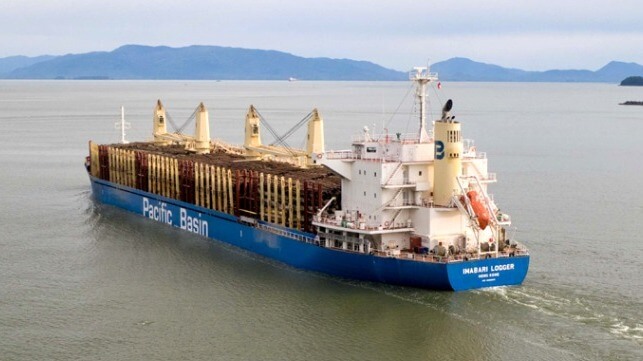Pacific Basin Selects Methanol for Next Gen Dry Bulkers

Pacific Basin Shipping, one of the world’s largest operators of dry bulk vessels, has become the latest shipping company to join the growing support for green methanol as the best emerging alternative currently available for the shipping industry. Becoming the first of the majors in the sector to select methanol for its next generation of ships, they join other large shipping companies including Maersk that plan to invest in the bio methanol option for their operations.
The Hong Kong-based shipping company which operates Handysize and Supramax dry bulk report that it completed a feasibility assessment of the various potential green fuels (covering fuel characteristics, availability and scalability, technical pros and cons, the lifetime operating and capital costs, etc.), working with Japan’s Nihon Shipyard Co, and Mitsui & Co. The goal was to cooperate on the development of zero-emission vessels and potential investment in related green fuel bunkering infrastructure.
At the completion of the study, the company says it has concluded that green methanol is currently the best fuel around which to plan its first generation of zero-emission vessels. They however noted that they believe that biofuels will also feature in the industry’s fuel mix and that ammonia will become an
important marine fuel in some sectors once technical and safety challenges are adequately addressed.
‘‘Drawing on the collective expertise of our partners, we are confident that methanol is currently the most suitable future fuel for Handysize and Supramax bulk carriers,” said Martin Fruergaard, CEO of Pacific Basin. “We believe the infrastructure to produce and distribute green methanol is coming.”

that matters most
Get the latest maritime news delivered to your inbox daily.
Pacific Basin working with Nihon and Mitsui now plans to embark on the next stage of its decarbonization project. They plan to develop a highly efficient ship design which will be the basis for its first generation of dual-fuel zero-emission newbuildings.
In addition to contributing to Pacific Basin’s transition to zero-emission vessels, the company hopes its project will become an example for the industry. They hope to make zero-emission vessels the default choice in the dry bulk sector by 2030.
